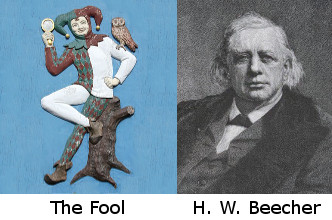John Dewey? William F. Russell? Helena Weatherby? Thomas A. Harris? Apocryphal?
Question for Quote Investigator: Thinking thoroughly about a topic is a difficult and painstaking task. Many people prefer quick and easy answers that can be selected with minimal thought. Yet sometimes people face obstacles that require careful cogitation. The famous philosopher and teacher John Dewey has been credited with the following remark:
We only think when we are confronted with a problem.
I have searched in several books written by Dewey and have been unable to find this statement. Was this really written or spoken by Dewey?
Reply from Quote Investigator: QI has been unable to find this quotation in John Dewey’s oeuvre.
QI conjectures that someone created a summary statement of Dewey’s position on this topic. The summary may have evolved as it was retransmitted. Next, someone placed quotation marks around the summary and attributed the words directly to Dewey. This is a known mechanism for the generation of misquotations.
In 1910 Dewey published “How We Think” which included two passages that were roughly analogous to the quotation, but in the first passage Dewey used words such as “perplexity” and “reflection”:1
Demand for the solution of a perplexity is the steadying and guiding factor in the entire process of reflection. Where there is no question of a problem to be solved or a difficulty to be surmounted, the course of suggestions flows on at random.
In the following passage Dewey attempted to restate a thesis in his book, but his phrasing was not concise, and he still employed words such as “perplexity”:2
We may recapitulate by saying that the origin of thinking is some perplexity, confusion, or doubt. Thinking is not a case of spontaneous combustion; it does not occur just on “general principles.” There is something specific which occasions and evokes it.
The next part of this article includes examples of individuals who have attempted to summarize Dewey’s point concisely. Selected citations appear in chronological order.
Continue reading “Quote Origin: We Only Think When We Are Confronted With a Problem”